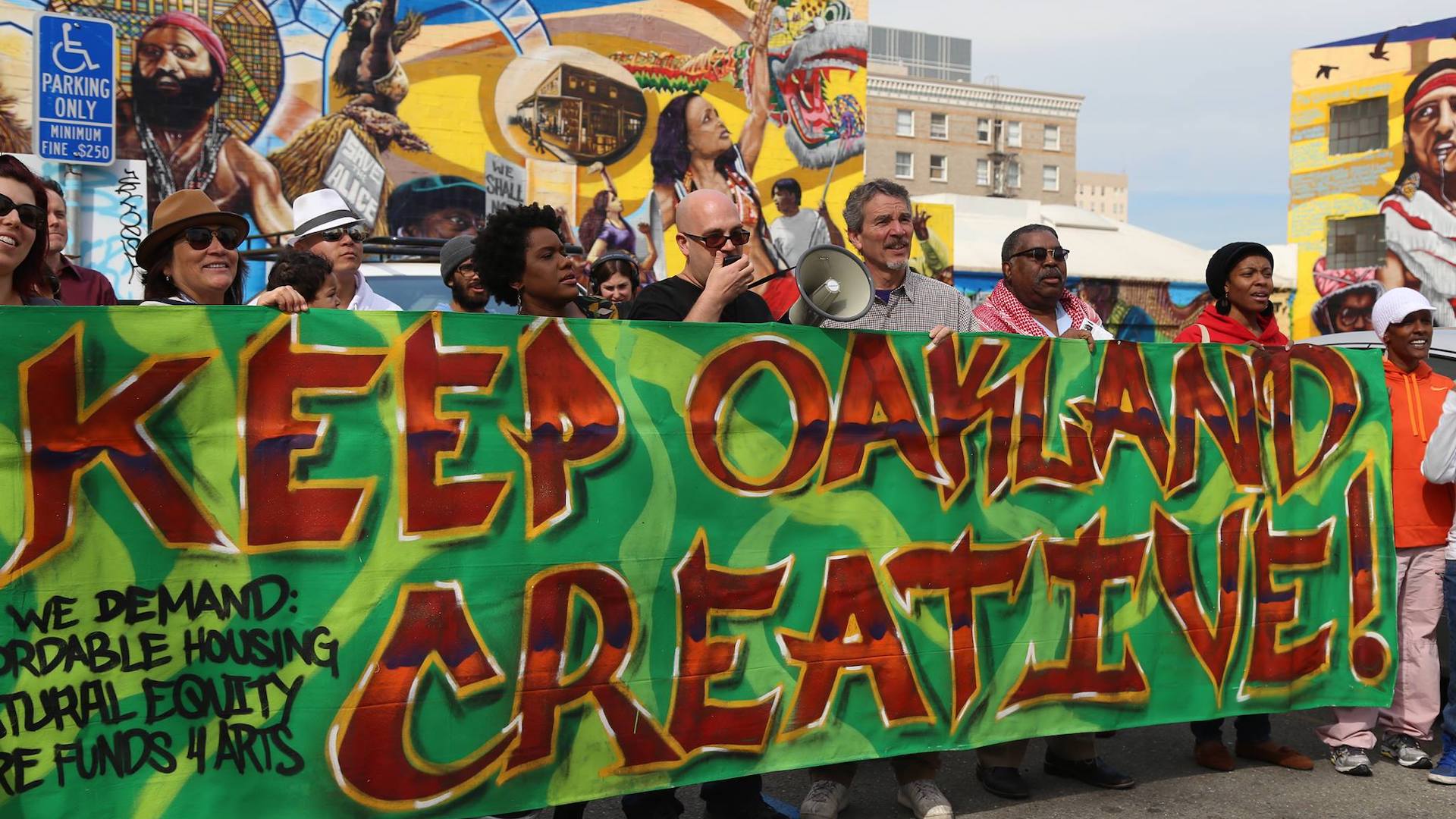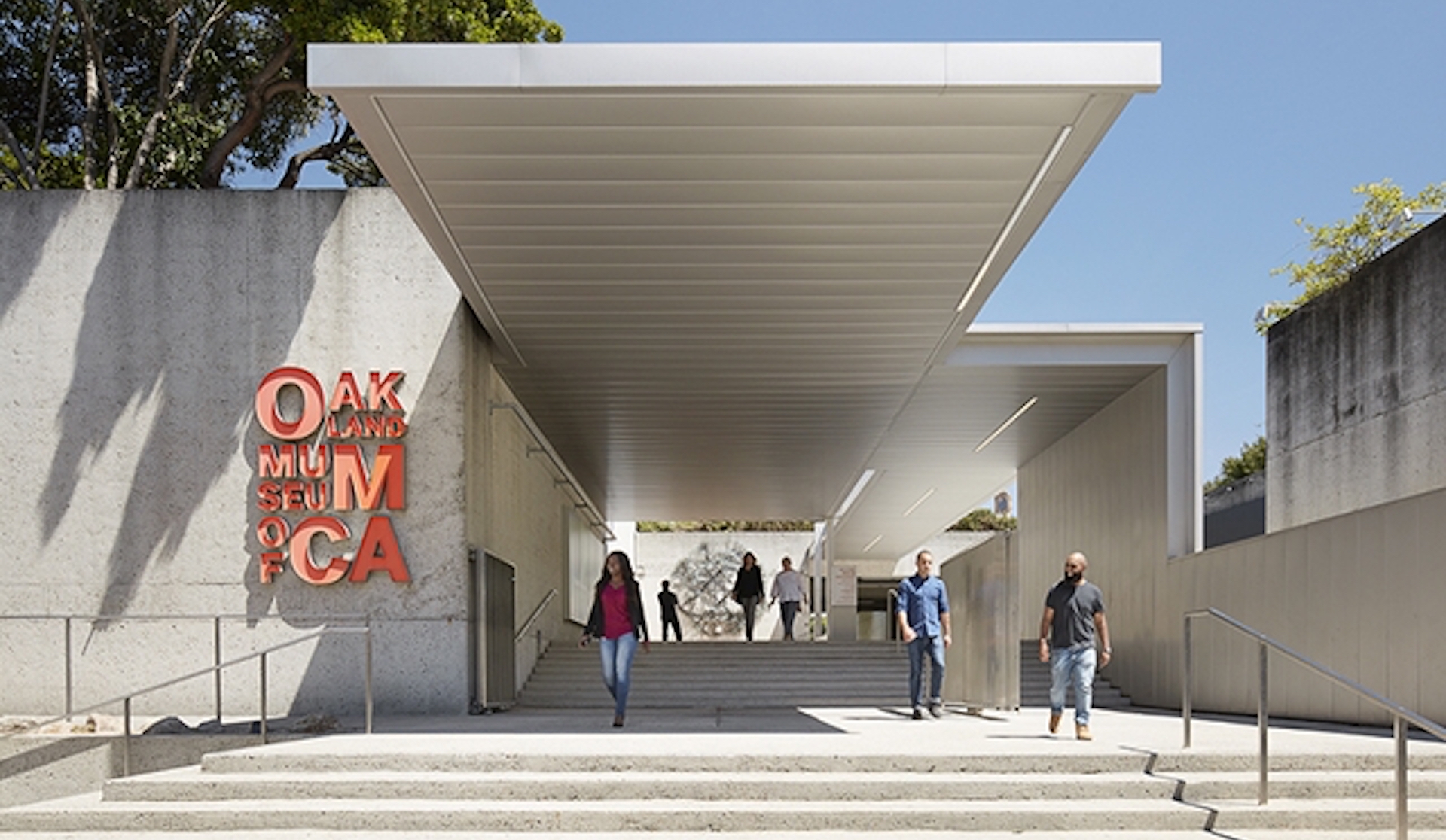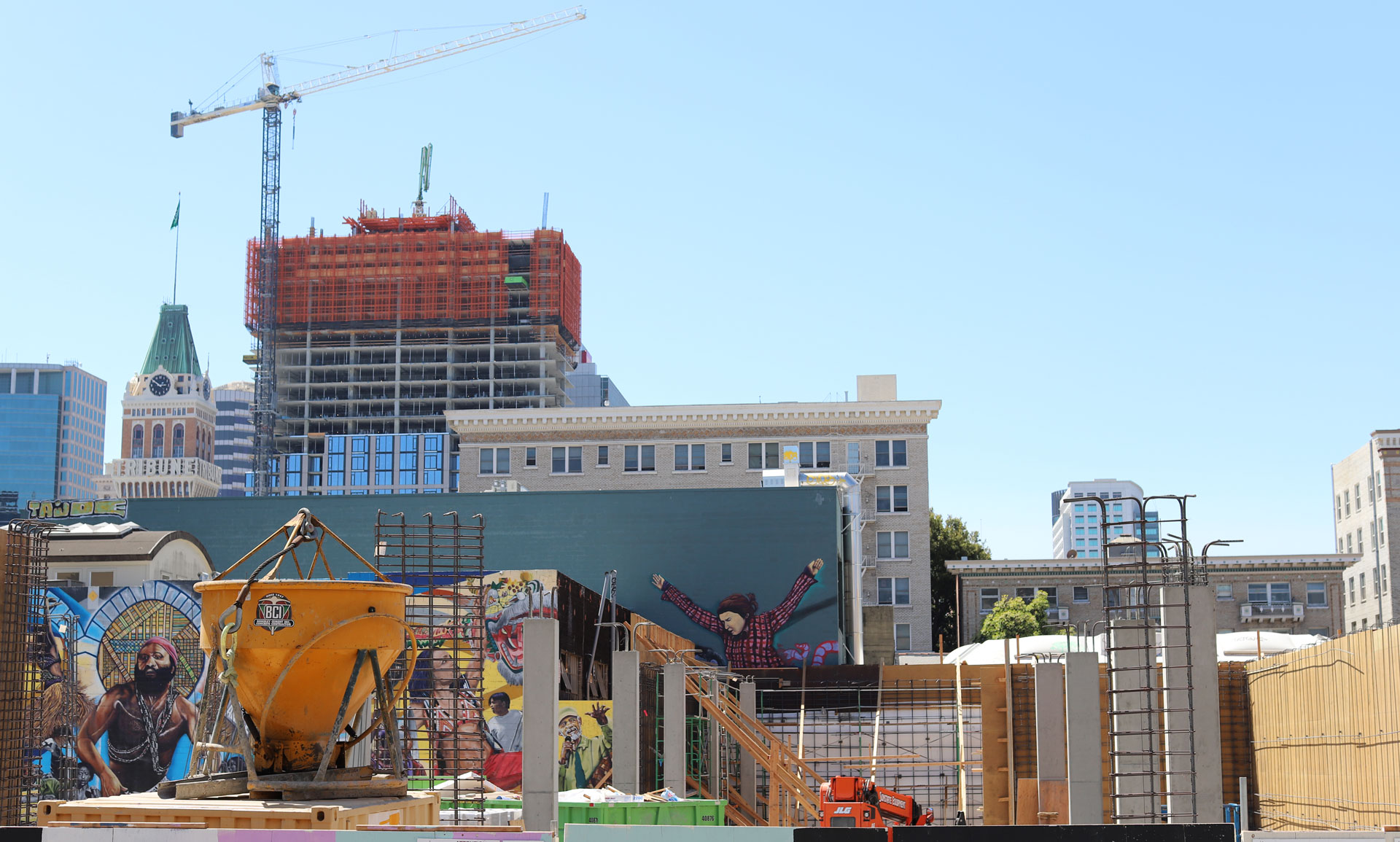In 2009, Oakland voters passed a ballot measure to increase arts funding as part of the city’s economic recovery from the Great Recession.
In Oakland, Plunging Hotel Tax Revenue Threatens to Gut Arts Funding

Measure C raised the city’s hotel tax from 11 percent to 14 percent, with the added revenue supporting Oakland’s Cultural Funding Program, tourism agency Visit Oakland, festivals such as Art + Soul, and organizations including the Oakland Museum of California (OMCA) and Chabot Space and Science Center.
In the decade since, annual hotel tax revenue has more than tripled, reaching $33 million in 2019. Last year, roughly a third of the $1.2 million that Oakland granted to artists and small arts nonprofits derived from hotel taxes, and Oakland Museum of California received nearly $1 million from the fund.
Still, the benefits have been modest, outstripped by rising housing costs. Oakland arts figures have in recent years agitated elected officials for additional funding with mixed success—securing one time boosts only to see them dropped from subsequent budgets or diverted to other uses.
Now, a new economic crisis is erasing the limited gains and threatening to plunge public art support to historic lows.
With the current shelter-in-place orders, Bay Area hotel occupancy rates have plummeted to below 20 percent, and in some cities, rates are in the single digits. Oakland’s budget director projects hotel tax revenue falling by $9 million to $18.01 million this fiscal year alone—part of a potential $80 million budget shortfall over the next 14 months.
“The size and scale of these revenue shortfalls is like nothing Oakland has ever before experienced,” reads the finance report received by Oakland City Council on Tuesday.

Oakland Museum of California, the city’s largest cultural organization, has for the past two years relied on hotel tax allocation for approximately $70,000 per month in operations support.
“We’re anticipating that goes away completely for the foreseeable future,” Lori Fogarty, director of the museum, said in an interview. “That’s absolutely one of our biggest hits.”
The impact follows the cancellation of the museum’s annual gala March 14, which aimed to raise $350,000 (many supporters donated regardless), and comes atop the ongoing losses from ticket sales and programming. OMCA expects to lose $1.5 million through the summer.
The museum recently reduced the hours of 106 full-time employees, a measure meant to avoid layoffs. Only with the help of a federal loan was the museum able to temporarily restore them.
Fogarty noted the $2.5 million Arts Relief Program in San Francisco, saying Oakland arts leaders could better organize to advocate for emergency relief from local government. But municipal budget crises tend to hasten privatization: The last recession spurred OMCA, for decades run by the City of Oakland, to reform as an independent nonprofit in 2011.
“There’s some parallels,” she said. “We were facing a decrease in funding then. But this is even more abrupt and far-reaching—I don’t know if there’s been a comparable moment.”

Roberto Bedoya, Oakland’s cultural affairs manager, said in a statement that the effects of city finances on his department will become clear in the coming months as officials reassess the budget.
The Cultural Funding Program (CFP) regularly supports performing arts organizations such as Oakland Ballet, Lower Bottom Playaz and Ubuntu Theater; murals by Community Rejuvenation Project and Attitudinal Healing Connection; and has funded projects by metalworker Karen Smith, Alice Street director Spencer Wilkinson and There, There author Tommy Orange.
In 2018 the cultural affairs unit published Oakland’s first Cultural Plan in decades, detailing proposals to alleviate cost-of-living pressures on local artists and sustain community identity. Recently staff also worked to revive Oakland’s long-dormant Cultural Commission. But the unit has struggled to win additional funding above and beyond its hotel tax allocation to enact most of its policy goals.
Even assuming a continuing uptick in hotel tax revenue, the CFP’s grant-making budget was poised to shrink this year as a one-time boost from the 2017 budget cycle lapses.
And there’s recent precedent for officials raiding arts funds: $100,000 set aside for murals in 2017 disappeared before it could be spent, Bedoya said at a committee hearing earlier this year, due to anticipated revenue shortfalls after council members voted to reduce cannabis taxes.
Eric Arnold, Community Rejuvenation Project spokesperson and a longtime observer of Oakland’s equity and culture initiatives, believes the CFP’s few gains since the recession are in serious jeopardy—especially without a grassroots campaign to advocate for the program.
“The one-time increases for arts funding that we have seen came directly from community pressure,” Arnold said. “Right now, who’s even organized to make a budget request?”

The San Francisco Arts Commission and related entity Grants for the Arts also expect hotel tax funding for cultural programs—significantly boosted by the 2018 passage of Proposition E—to dwindle as city finance officials project staggering losses of up to $288 million this fiscal year.
But San Francisco has more diversified revenue sources for its arts support, and Proposition E actually limits the losses to the Hotel Tax for the Arts fund. Hence, allocations to the fund are expected to only decline by $4.6 million to $28.8 million, according to a March 31 finance report.
Brent Miller, co-founder of Center for New Music, a San Francisco venue supported by Grants for the Arts, expects the grant-maker’s reserves to delay the effects on small nonprofits. For now, he’s more concerned about missing rental income that normally subsidizes programming.
“I’m hearing Grants for the Arts funding next year is kind of set in stone,” said Miller. “We’re really going to see the impact of that the following year, and then I don’t know what we’ll do.”
Arts funders at the state level are also shuddering. At a livestreamed California Arts Council meeting on April 1, commissioners debated relief measures, such as loosening grant restrictions to let organizations cover immediate payroll and rent costs with awards meant for specific projects.
The council’s grant-making budget has multiplied in recent years, totaling $35 million in 2020. But when talk turned to the council’s financial outlook, commissioners seemed to brace for cuts.
Ayanna Kiburi, the council’s deputy director, showed doubts about additional funding for cultural districts included in Governor Gavin Newsom’s budget proposal from this past January. “That probably won’t—we don’t know what’s going to happen,” Kiburi said.
The state funder is in turn awaiting federal support. The $2 trillion federal aid package approved last month includes $75 million each for the national endowments for the humanities and the arts, with 40 percent reserved for state partners such as California Arts Council.
But the money remains in limbo. Nashormeh Lindo, a council member based in Oakland, said the “amount, timing and mechanism” of the additional national endowment funding is unknown.

